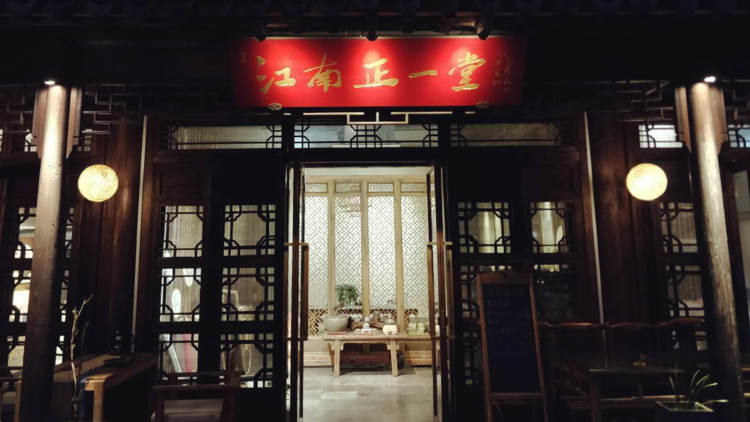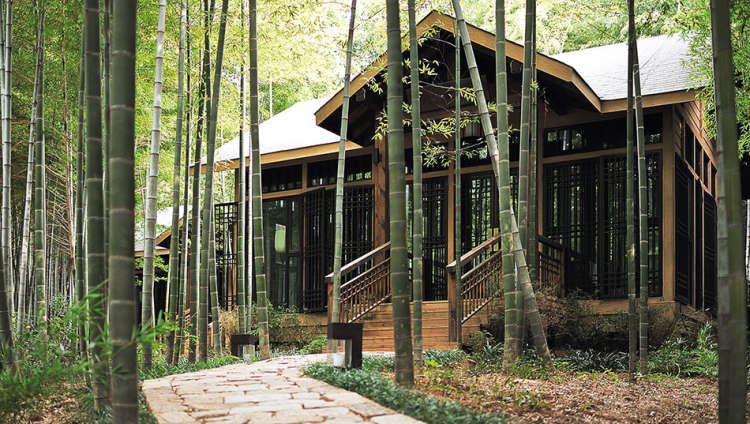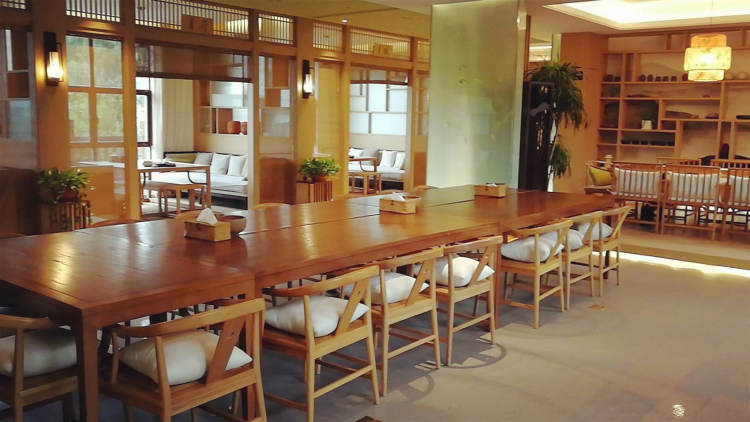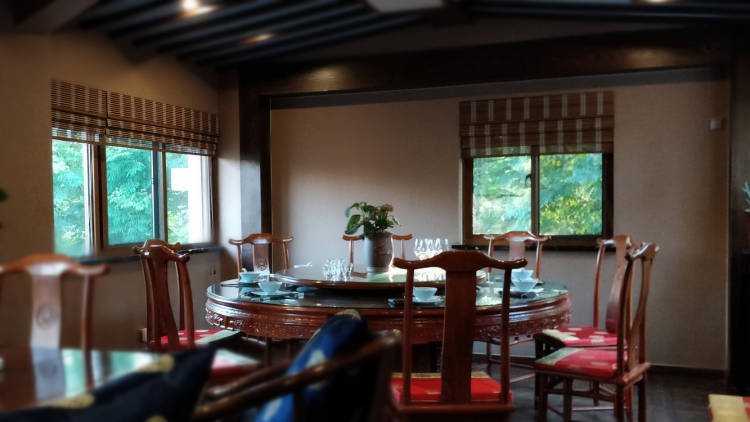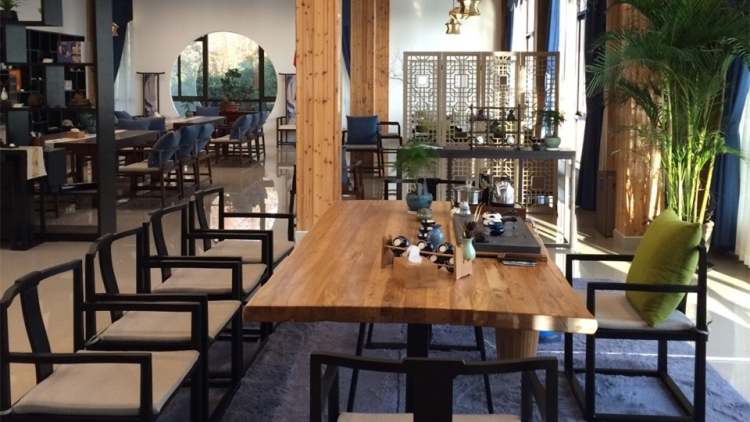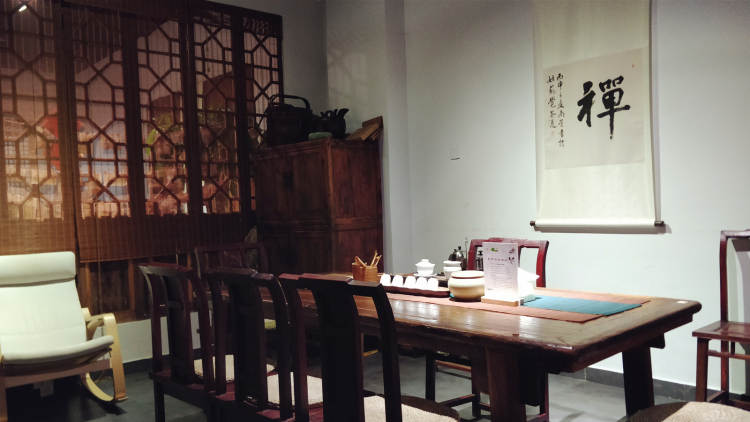Jiangnan Zhengyitang is a high-end tea culture brand in Suzhou, and its fresh hospitality style has always been loved by tea guests, and now there are many branches all over Suzhou Industrial Park, Wuzhong District.
Fujian Fuding white tea is famous far and wide, and the self-operated barren mountain tea land of Xianpu in Fuding Qiangxi Town has given Jiangnan Zhengyitang great confidence. The Fuding white tea, black tea, and Wuyi Mountain rock tea in the tea list are generally produced by Jiangnan Zhengyitang, and they are also the tea teas recommended by tea masters. Other teas, such as pu-erh, are provided by suppliers.
As a typical business-oriented teahouse, Jiangnan Zhengyitang generally entertains team-shaped tea guests, and the tea set is changed accordingly according to the specific type of tea, but there has been a situation where stainless steel teapots are used to make tea, which makes many tea lovers feel a little unhappy. Jiangnan Zhengyitang uniformly selects Nongfu Spring as the tea water, and the overall specifications are medium to high.
Most of the tea masters in Jiangnan Zhengyi Hall have not passed the national tea master professional qualification certificate, but the tea house itself has tea art teaching, and the tea master's skills are still relatively reliable. Tea guests can choose to have the tea master brew on their behalf, and the tea house does not charge extra fees.
The teahouse focuses on recommending the barren mountain silver needle. As we all know, white tea is generally divided into Baihao Silver Needle, White Peony, Gongmei, Shou Mei, and Baihao Silver Needle is the best white tea, and the quality decreases in turn. Jiangnan Zhengyitang generally only picks tea leaves before Qingming, and the time is only one or two weeks. Tea farmers only pick the most tender "one shot and one flag" (one bud and one leaf) to make barren mountain silver needles, and the yield is very scarce. When brewing, the tea master will flush the water along the wall of the cup to prevent damage to the silver needle, and the water of Baihao silver needle is shorter, and the details show the care of the tea house.
Attentive tea customers will find that Jiangnan Zhengyitang provides relatively rare aged white tea on the market, among which the 89-year-old white tea priced at 2800 yuan/10g/pot is the most eye-catching, after all, there is such a legend in the industry - "three years of tea, seven years of medicine, ten years of treasure". According to the data of the paper "Analysis of the Main Biochemical Components of White Tea in Different Years", the nutrient content in white tea will decrease with the increase of storage time, and the decline rate will generally be slower in the first three years, and then increase rapidly. The contents of tea polyphenols (affecting the color, aroma and taste of tea), amino acids (affecting the freshness and aroma of tea), soluble sugar, and caffeine (together with tea polyphenols constitute the basic bitter and astringent taste of tea) of 20-year-old white tea are equivalent to 36.12%, 8.2%, 71.53%, and 58.88% of the new tea of that year, respectively. It can be inferred that the longer the storage time, the lower the aroma and taste performance level of white tea. Many veterans believe that white tea that has been aged for 3~10 years has the best comprehensive performance. This kind of decades-old tea is generally based on tea lovers' collections and merchants' fried works, and it is not drinkable.
The environment of Jiangnan Zhengyi Hall shows the taste of modern and ancient charm, and there is nothing inappropriate.



